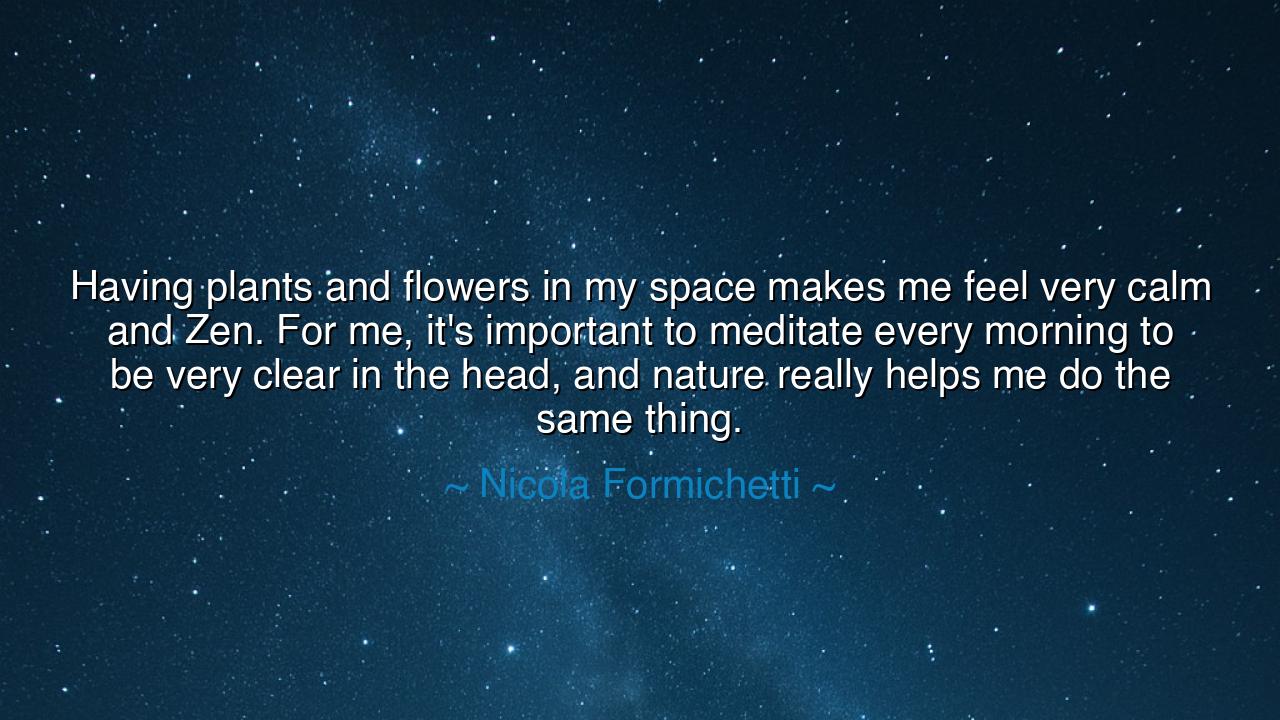
Having plants and flowers in my space makes me feel very calm
Having plants and flowers in my space makes me feel very calm and Zen. For me, it's important to meditate every morning to be very clear in the head, and nature really helps me do the same thing.






Nicola Formichetti, a creator of visions in art and fashion, once confessed with simplicity and depth: “Having plants and flowers in my space makes me feel very calm and Zen. For me, it’s important to meditate every morning to be very clear in the head, and nature really helps me do the same thing.” Behind these words lies not merely the preference of an artist, but an ancient truth — that the soul of man finds harmony in the presence of nature, and that the stillness of green life can heal the restless storm within.
The origin of this truth is older than civilization. From the dawn of time, human beings have sought peace in gardens, fields, and groves. The Persians built their walled gardens, calling them paradise. The Chinese sages spoke of aligning their spirits with rivers and mountains. The monks of Europe grew cloisters filled with herbs and flowers, where prayer and growth intertwined. Formichetti, in his modern voice, echoes the wisdom of the ancients: that to dwell among plants is to dwell among silent teachers, who calm us without speaking and guide us without commanding.
Consider the story of the Buddha, who found enlightenment not in the bustle of a city nor in the halls of power, but seated beneath the Bodhi tree. There, surrounded by the quiet breathing of nature, he conquered illusion and found clarity of mind. The leaves above him whispered serenity, the earth beneath him gave stability, and in the stillness of the natural world his spirit awakened. This is the same power Formichetti describes: the power of nature to steady the mind and prepare the soul for vision.
We see this lesson again in the life of Marcus Aurelius, emperor of Rome. Amid the pressures of empire and war, he turned not only to philosophy but also to long walks in the countryside. He wrote in his Meditations that the rustling of leaves, the flow of rivers, and the stillness of the sky brought him clarity. Though he commanded armies, he recognized that the true battle was within, and the presence of nature armed him with peace. His life shows that no matter how heavy the crown, the quiet of the earth can steady the spirit.
The teaching here is luminous: to seek clarity, we must return to the simple and the natural. Plants and flowers do not hurry, yet they grow. They do not shout, yet they speak to the soul. They remind us that life does not need to be forced; it unfolds in rhythm, if we will only align ourselves with it. To begin the day with meditation, as Formichetti counsels, is to sharpen the mind before the battles of the world. To surround ourselves with nature is to carry a shield of calm against the noise and chaos of life.
What, then, shall we practice? Rise each morning and take a few moments in stillness. Breathe deeply, as the trees breathe. Place a plant upon your desk, a flower by your window, so that the presence of life may remind you of balance. When your mind is clouded, step outside and let the sky clear it. When your heart is heavy, let the green of the earth lighten it. Let nature be your companion and your silent guide.
Therefore, O children of modern times, remember this: the wisdom of peace is not far away, hidden in sacred books or lofty temples — it is in the plants and flowers, in the breath of morning air, in the stillness of meditation. Nicola Formichetti’s words carry the voice of the ancients into our age: if you wish to live with clarity, place yourself near the living earth, for nature will do what no artifice can — it will bring your spirit into harmony, and remind you that serenity is your birthright.






AAdministratorAdministrator
Welcome, honored guests. Please leave a comment, we will respond soon